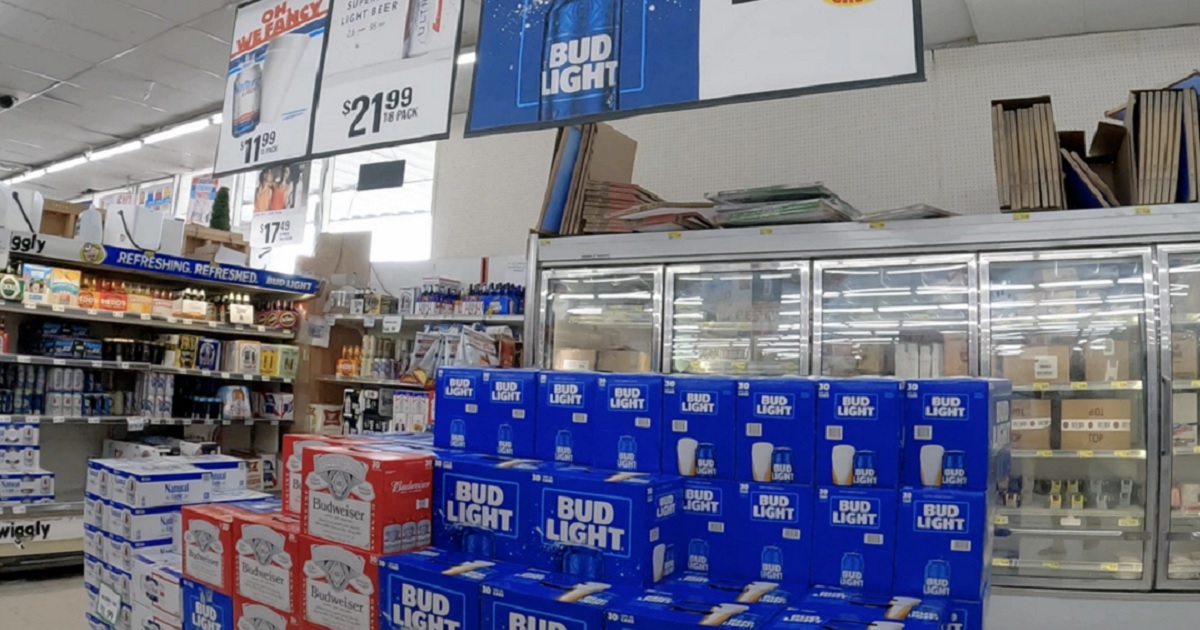
Title: Bud Light Makes Desperate Move to Save 4th of July Sales – But There’s a Huge Problem
Introduction
As the summer heat waves roll in and barbecues are being prepped for the 4th of July, Bud Light finds itself in a tight spot. The popular beer brand is known for its spirited campaigns and strong presence during Independence Day celebrations. However, this year, Bud Light is facing a major hiccup that threatens to dampen its sales revenue during this crucial holiday season.
The Desperate Move
To combat the challenges posed by the ongoing COVID-19 pandemic, Bud Light recently launched a bold marketing strategy centered on virtual celebrations. Recognizing that large gatherings might be restricted due to social distancing measures, the brand planned to encourage consumers to host virtual parties with their friends and family. By promoting technologically-driven alternatives to in-person get-togethers, Bud Light hoped to maintain its sales momentum on America’s favorite holiday.
The Huge Problem
Despite Bud Light’s well-intentioned efforts, their virtual party campaign has confronted a massive obstacle: consumers’ eagerness to enjoy the 4th of July outdoors, alongside friends and relatives. After months of lockdowns and social isolation, people are craving genuine face-to-face interactions, and the idea of hosting virtual parties simply doesn’t hold the same appeal.
Bud Light’s fallback plan fails to address the fundamental desires of individuals hoping to embrace the spirit of 4th of July celebrations. The company finds itself swimming against a strong current – the drive to reconnect with loved ones, enjoy barbecues, and raise a glass together in good company.
The Power of Traditions
The 4th of July has always been more than just a date on the calendar; it’s a cherished American tradition. Families and friends come together to enjoy a day full of patriotic parades, fireworks, and, yes, ice-cold beers. By choosing an alternative approach, Bud Light risks alienating its customer base by failing to recognize the significance of these traditions.
Furthermore, Bud Light’s virtual party campaign fails to consider the technological limitations faced by some individuals. Not everyone has access to stable internet connections or the devices required to facilitate seamless virtual gatherings. This oversight shows a marked lack of understanding of their consumers’ diversity and risks excluding a significant portion of their target market.
Pivoting towards a More Inclusive Strategy
Rather than relying solely on virtual celebrations, Bud Light should embrace a more inclusive approach that caters to the diverse needs and desires of their customers. Emphasizing the importance of responsible and socially-distanced in-person gatherings can help the brand strike a balance between safety protocols and the enjoyment of cherished traditions.
One possible solution would be for Bud Light to partner with local authorities and communities to organize smaller, outdoor events that adhere to social distancing guidelines. By providing spaces for consumers to gather responsibly, Bud Light can tap into the pent-up demand for physical socialization and strengthen the association of its brand with community values.
Conclusion
While Bud Light’s desperate move to save 4th of July sales through virtual parties seemed like an innovative solution, it failed to resonate with consumers. This demonstrates that the desire for personal connection and tradition cannot be easily replaced by technology. By reevaluating their marketing strategy and embracing safer, socially-distanced outdoor gatherings, Bud Light has the opportunity to salvage their sales while reaffirming their position as a brand that truly understands and values the American spirit.
